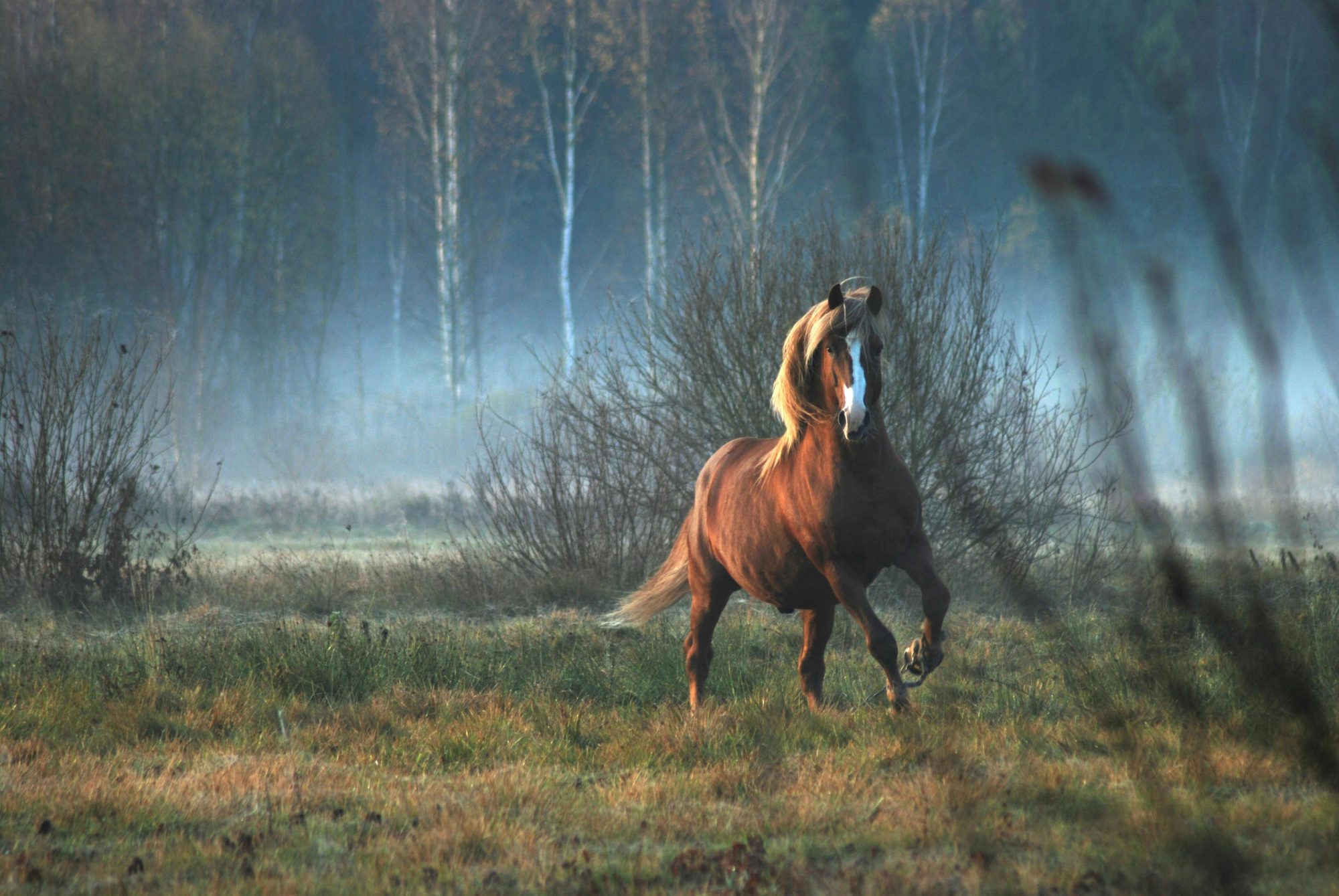As the days get shorter and the nights get longer, it’s not just humans who start to feel a little out of sorts. Horses can also become more sensitive to their surroundings during the autumn and winter months due to a combination of factors, including:
- Changing weather: The cooler temperatures, shorter days, and increased wind and rain can heighten horses’ senses, and you may notice subtle – or not so subtle – shifts in their behaviour.
- Changing surroundings: The shifting landscape with falling leaves and bare branches, and the different levels and quality of light, mean nothing looks quite the same, and there can also be unexpected shadows or different sounds that startle horses.
- Autumnal festivities: The increased activity and noise around Halloween and Guy Fawkes can be stressful for horses, and with outdoor decorations and fireworks continuing from this point through to the New Year celebrations, it’s good for you both to be prepared.
How to Help Your Horse Cope
There are a number of things you can do to help your horse feel more comfortable during spooky season. These include:
- Desensitisation: Gradually expose your horse to new sights, sounds, and smells. This will help them learn that new and different things aren’t dangerous for them.
- Groundwork: Spend time on the ground with your horse, building trust and communication, which will help them feel more secure around you. This can be as simple as a slow grooming session, some in-hand exercises – you could build in some of the desensitisation aspects, too! Even just being in the stable with them with no time constraints can be beneficial for your relationship.
- Positive reinforcement: Reward your horse for good behaviour, such as staying calm around unfamiliar objects. Lots of verbal praise and a nice scratch on the withers is perfect.
- Communication: Talk to your horse calmly and reassuringly and behave and move confidently and with purpose. They will take their lead from you via your voice and your energy as well as your body language.
Working with a Professional
If you are concerned about your horse’s reactiveness, it is always a good idea to consult with a professional. An equestrian coach can help you develop a plan to address you and your horse’s specific needs, or can even help make recommendations for an equine behaviourist in more extreme cases.
Additional Tips
- Be aware of your own body language: Horses are very sensitive to our positions and expressions, our emotions, our breathing and our heart rates; there are a number of scientific research papers which address these if you want to read more. In short, though, if you are feeling anxious, your horse will be able to sense it and (as a prey animal) they will shift into fight or flight mode.
- Take your time: Don’t rush your horse through anything that is making them nervous. You want to expose your horse to new situations and experiences to help them become familiar and less worried about them, but the experience needs to be positive if it is to be effective. Forcing the issue will generally make things worse.
- Use it or lose it: It can take time to build a horse’s trust and confidence, but once you are in a more secure and positive state together, it is important to maintain your good work and gradually build on the experiences so that next autumn you’re already in a strong position.
By following these tips, you can help yourself and your horse to stay calm and confident during spooky season, and beyond.


Pingback:Why Wind Makes Our Horses Spooky (and What to Do!) - Champion Equestrian Coaching